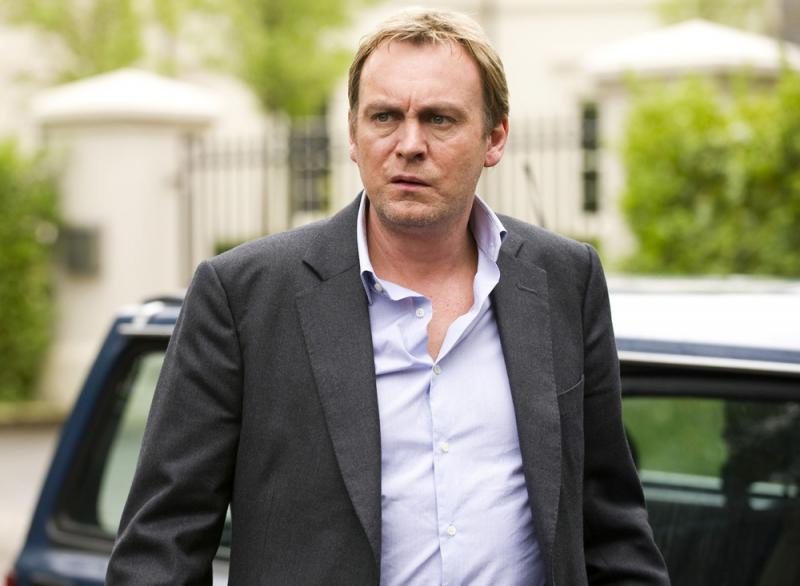Printing Money! The knee-jerk outcry from New Zealand's politicians, journalists and right-wing economists is that Quantitative Easing is the same as "printing money". In reality, QE its a IMF-endorsed method of freeing-up the flow of credit to businesses large and small. The Greens' QE proposal was much more limited: to provide urgently needed capital for the Christchurch re-build. Strangely, the fact that private banks "print money" every day elicits no outcry at all from the critics of QE.
ARE YOU MAKING ANY MONEY? It’s a common enough question – to
which most of us reply with a rueful “Not enough!” A fortunate few (they would call
themselves the ‘hard-working’ and ‘talented’ few) might venture a smug “Oh,
well, I can’t complain.” But the truth of the matter is that only two things in
this world “make” money: governments and banks. (If you’re ‘making’ money and
you’re NOT one of those two things, then you’re a counterfeiter.)
The funny thing about money – given how vital it is to our
lives – is that hardly anyone knows anything about how governments create their
currencies, and even fewer understand why banks are allowed to ‘make’ money at
all. Indeed, a recent British survey revealed that most people assume that a bank’s
lending cannot exceed the value of its deposits. The idea that banks can, by
means of a simple accounting entry, create hundreds of millions of dollars,
tends to be greeted with considerable scepticism.
Take the recent kerfuffle over the Green Party’s (now
abandoned) proposal to use “Quantitative Easing” (QE) to both assist the
Christchurch rebuild and lower the value of the New Zealand dollar. Earthquake
Recovery Bonds, to the value of 1 percent of New Zealand’s GDP (approximately
$NZ2 billion) were to be purchased by the Reserve Bank.
Adding such a large sum to the stock of Kiwi dollars would
have devalued the currency by several cents against the US dollar – making our
exports more competitive on international markets. Conversely, imported goods
would have become more expensive, reducing consumer demand and thereby
improving the country’s balance of payments.
The additional $2 billion – available immediately from New
Zealand institutions – rather than being drip-fed to us from the grudging hands
of foreign-based reinsurance corporations – was also to have been used to
kick-start Christchurch’s still sluggish reconstruction, boost the country’s
economic growth, and reduce the level of unemployment.
A reasonable policy, you might have thought, in the light of
New Zealand’s over-valued dollar and the damage it is doing to the economy.
But, no. The Green co-leader’s QE proposal was decried by politicians,
journalists, bloggers and bank economists, as tantamount to “printing money”.
Were Dr Russel Norman’s QE to be adopted, they wailed, we
would very soon find ourselves in the position of Zimbabwe: facing
hyperinflation and using million-dollar notes to buy a single loaf of bread.
Worthless Currency: Weimar Germany's hyperinflation (1920-23) was the result of its government's attempt to monetize its reparations debt to the victors of World War I. In 1938, New Zealand's first Labour Government's use of "Reserve Bank Credit" to fund its massive state house construction programme did not result in a similar inflationary surge because the money was used to create tangible assets.
Now, if Dr Norman’s proposal had been to monetize New
Zealand’s debt by repaying her creditors with newly-printed $1,000,000-bills issued
by the Reserve Bank, then the jibes of his critics would have been well
deserved. But hyperinflation only occurs when the expansion of the nation’s
money supply isn’t matched by an answering expansion in the value of its
material assets.
The $2 billion Dr Norman was proposing to inject into the
New Zealand economy wasn’t ear-marked for the repayment of debt, but for the
reconstruction of its devastated second city, Christchurch. It would have
become the steel and concrete of a reborn central business district.
Transformed into the weatherboard and roofing tiles of new and refurbished
homes, it would have brought desperately needed relief to Christchurch’s
long-suffering earthquake victims.
Sadly, the cacophony of ill-informed criticism directed at
Dr Norman’s QE proposal was sufficient to bring about its withdrawal.
As I watched the Greens back away from their perfectly
reasonable and generous plans, I wondered why we have heard no similar outcry
against the QE being practised by this country’s Australian-owned banks.
Every month, New Zealand’s privately-owned financial
institutions conjure billions of dollars out of thin air in the form of
mortgages. No printing presses are required to ‘make’ this money – a computer
does the job in a fraction of a second. And, when the mortgage is granted on an
existing property, adding nothing to the nation’s stock of material assets, is
the effect inflationary?
You betcha! So much so, in fact, that the Reserve Bank is
casting about frantically in search of some way to prevent yet another housing
“bubble” from blowing up and bursting.
And yes, you’re right, the Global Financial Crisis was caused by banks and finance houses
“making money”. And, yes, it was governments – using their power to make money – that baled them out. And, yes, you’re
right again, the mechanism still being
used to painstakingly reconstruct the shattered global economy is called – Quantitative Easing.
This essay was
originally published in The Waikato Times, The Taranaki Daily News, The
Timaru Herald, The Otago Daily Times and The Greymouth Star of Friday, 28 June 2013.










